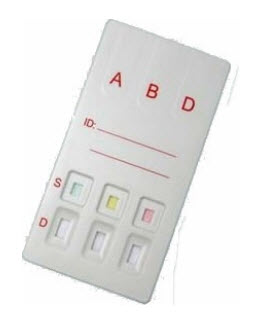Blood typing has been a crucial aspect of medical diagnostics, particularly in situations requiring blood transfusions or organ transplants. The ABO blood group system, along with the Rh factor, plays a pivotal role in determining compatibility between donors and recipients. In recent years, the introduction of the ABO & RHD Rapid Test has brought about a revolutionary change in how blood typing is conducted, addressing challenges associated with conventional methods.
Understanding ABO Blood Group System
The ABO blood group system categorizes blood into four main types: A, B, AB, and O. Each type is characterized by specific antigens and antibodies. The significance of this classification lies in its impact on blood transfusions and organ transplants. Ensuring compatibility between donor and recipient blood types is crucial to prevent adverse reactions.
Role of Rh Factor in Blood Typing
Apart from the ABO system, the Rh factor, indicating the presence or absence of the Rh antigen, further refines blood typing. Individuals with the Rh antigen are classified as Rh-positive, while those without it are Rh-negative. This factor is particularly crucial in pregnancy, where Rh incompatibility can lead to complications.
Challenges in Conventional Blood Typing Methods
Traditional blood typing methods, while effective, come with certain challenges. The processes involved are often time-consuming, and there is always a risk of human errors during the testing phase. In urgent medical situations, the need for a faster and more reliable blood typing solution becomes evident.
The Emergence of ABO & RHD Rapid Test
The ABO & RHD Rapid Test represents a significant leap forward in blood typing technology. Unlike conventional methods, rapid testing provides quick and accurate results, making it especially valuable in emergency scenarios. This innovative approach has streamlined the blood typing process, ensuring efficiency and precision.
How ABO & RHD Rapid Test Works?
The testing procedure is relatively simple. Using advanced technology, the rapid test detects specific antigens and antibodies in the blood, providing results within a short timeframe. This method not only accelerates decision-making in critical situations but also enhances the overall accuracy of blood typing.

Applications in Medical Settings
The applications of ABO & RHD Rapid Test extend across various medical settings. Blood banks and transfusion services benefit from the quick results, allowing for prompt actions in managing blood supplies. Additionally, obstetrics and gynecology departments find this technology particularly useful in addressing Rh-related complications during pregnancy.
Advantages for Emergency Situations
In emergency situations where time is of the essence, the ABO & RHD Rapid Test shines. Rapid decision-making based on accurate blood typing can significantly improve patient outcomes, especially in critical conditions requiring immediate medical intervention.
Comparative Analysis with Traditional Methods
A comparative analysis reveals the superiority of ABO & RHD Rapid Test over traditional methods. Not only does it provide faster results, but it also proves to be cost-effective in the long run. The efficiency and accuracy of this rapid testing technology make it a valuable asset in the healthcare industry.
Integration into Healthcare Practices
The successful integration of ABO & RHD Rapid Test into healthcare practices requires training for medical professionals. Ensuring that healthcare providers are well-versed in the application of this technology is essential for its widespread adoption. From small clinics to large hospitals, the benefits of rapid testing can be harnessed across various medical facilities.
User-Friendly Nature of ABO & RHD Rapid Test
One of the key advantages of this rapid testing technology is its user-friendly nature. The simplified procedures make it accessible for medical staff, reducing the chances of errors during the testing process. Additionally, patients experience a more straightforward and less invasive blood typing procedure.
Addressing Concerns and Misconceptions
As with any new technology, concerns and misconceptions may arise. Addressing common doubts about ABO & RHD Rapid Test and providing scientific validation for its reliability are crucial steps in building trust among healthcare professionals and the general public.
Future Developments in Blood Typing Technology
The field of blood typing continues to evolve, with ongoing research and innovations aimed at improving existing technologies. Future developments may bring about further enhancements in rapid testing, making it an even more integral part of medical diagnostics.
Conclusion
In conclusion, the ABO & RHD Rapid Test represents a groundbreaking advancement in blood typing technology. Its speed, accuracy, and user-friendly nature make it a valuable asset in various medical settings. As healthcare continues to evolve, embracing innovative solutions like rapid testing ensures better patient care and outcomes.
FAQs About ABO & RHD Rapid Test
1. Is ABO & RHD Rapid Test suitable for all blood types?
Yes, the rapid test is designed to accommodate all blood types, providing accurate results across the board.
2. How does ABO & RHD Rapid Test impact the cost of blood typing in healthcare settings?
The efficiency of rapid testing can lead to long-term cost savings for healthcare facilities, balancing initial investments.
3. Are there any side effects or risks associated with ABO & RHD Rapid Test?
ABO & RHD Rapid Test is considered safe, with minimal risks or side effects reported.
4. Can ABO & RHD Rapid Test be used for routine blood typing in non-emergency situations?
Absolutely, the rapid test is versatile and can be employed in both emergency and routine blood typing scenarios.

